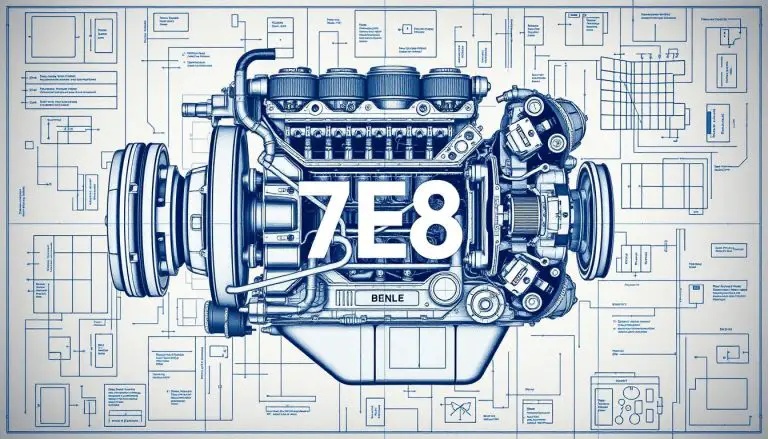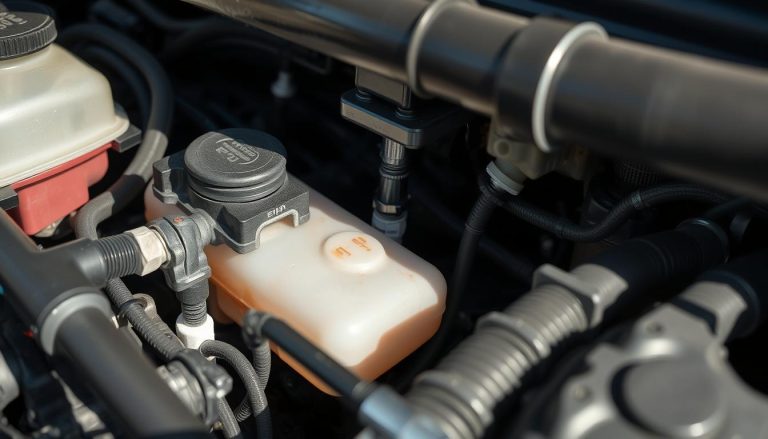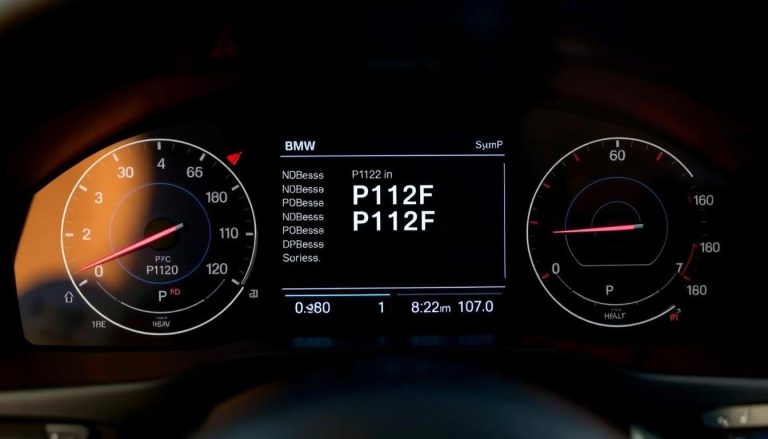Have you ever seen the check engine light flicker on your dashboard and wondered what it could mean for your vehicle? Among the myriad of trouble codes, the P0176 code often leaves drivers scratching their heads. This elusive code is linked to the fuel composition sensor circuit and can lead to a range of performance issues if not addressed promptly.
Let’s dive into everything you need to know about the P0176 code, from its symptoms and causes to diagnosis and repair options.
Key Takeaway
The P0176 code signifies an issue with the fuel composition sensor circuit in your vehicle. This sensor plays a crucial role in determining the right air-fuel mixture for optimal engine performance.
When this code triggers, it often leads to noticeable changes in how your car runs. Problems can range from decreased fuel efficiency to rough idling and increased emissions.
It’s vital to address a P0176 code promptly, as ignoring it could lead to more significant issues down the line. Understanding its implications not only helps you maintain your vehicle but also saves you money on potential repairs.
Stay tuned as we explore the symptoms, causes, diagnostics, and solutions related to the P0176 code further!
What does the P0176 code mean?
The P0176 code signifies an issue with the fuel composition sensor circuit. This sensor plays a vital role in determining the ratio of ethanol to gasoline in flex-fuel vehicles.
When this code triggers, it indicates that the Engine Control Module (ECM) has detected a problem with how accurately the sensor is reading or communicating its findings. A malfunctioning fuel composition sensor can lead to improper air-fuel mixture calculations, potentially affecting engine performance and emissions.
This diagnostic trouble code often surfaces during routine vehicle diagnostics or when there are noticeable performance issues. Understanding this code helps owners address potential problems proactively before they escalate into more severe mechanical failures.
What are the common symptoms of a P0176 code?
When your vehicle throws a P0176 code, it often comes with some telltale signs:
- Poor engine performance. You might experience sluggish acceleration or difficulty maintaining speed.
- Another common symptom is rough idling.
- Engine stalls
- Fuel efficiency tends to take a hit as well. If you find yourself stopping for fuel more often, that’s another indicator that something’s amiss.
- Your check engine light will illuminate on the dashboard.
- Unusual smells from the exhaust could also signal problems related to this code.
What causes a P0176 code?
The P0176 code can arise from several underlying issues :
- Faulty Fuel Cap
- Faulty Fuel Composition Sensor
- Faulty wiring or connectors can disrupt communication between the sensor and the engine control module (ECM).
- Damaged or restricted fuel line
- Problems within the fuel system itself can contribute to this error. Contaminated or low-quality fuel might confuse the sensor readings.
- A malfunctioning ECM may also be to blame.
How is a P0176 code diagnosed?
Diagnosing a P0176 code typically starts with an OBD-II scanner. This device retrieves the trouble codes stored in your vehicle’s computer system.
Once the code is read, technicians will check for any additional codes. Multiple codes can provide insight into related issues.
Next, they’ll inspect the fuel composition sensor and its wiring for signs of damage or corrosion. A visual examination often reveals problems that might not be immediately obvious.
After that, testing voltage and resistance levels becomes essential. Technicians may use multimeters to ensure components are functioning properly.
A road test might follow to replicate conditions under which the error occurred. Monitoring live data provides real-time insights into how your engine responds during operation.
If necessary, further diagnostic tests may involve checking related sensors or even fuel quality itself to rule out external factors impacting performance.
Is the P0176 code specific to certain car makes or models?
The P0176 code is not limited to specific car makes or models. It can appear across a variety of vehicles, particularly those equipped with flex-fuel systems.
However, certain manufacturers may experience this code more frequently due to design or component differences. Brands like GM and Ford often see this issue arise in their flex-fuel vehicles.
Each make has its quirks, so the way the sensor interacts with other components may vary. This means diagnosing the problem could require brand-specific knowledge.
While the P0176 code might show up on your dashboard, understanding your vehicle’s unique system will help pinpoint the underlying issue more effectively. Always consult professional diagnostic tools for accurate readings tailored to your specific model.
Can I continue driving with the P0176 code?
Driving with a P0176 code can be risky. This code indicates an issue with the fuel composition sensor circuit, which affects how your engine manages fuel and air mixture.
While you may not notice immediate performance issues, ignoring it could lead to more serious problems down the road. Poor fuel efficiency and sluggish acceleration are just a couple of potential symptoms.
If the check engine light is on due to this code, it’s a sign that something needs attention. Continued driving without addressing it might strain other components in your vehicle.
In some cases, you might still be able to drive short distances safely. However, keep an eye out for any unusual behavior from your car’s performance. It’s always wise to get any diagnostic codes checked promptly by a professional mechanic to avoid future complications.
How do I fix a P0176 – Fuel Composition Sensor Circuit ?
Fixing a P0176 code requires a systematic approach. First, start with the fuel composition sensor itself. Inspect it for any visible damage or corrosion that could disrupt its function.
Next, check the wiring and connectors leading to the sensor. Loose connections or frayed wires can cause signal issues, so ensure everything is secure and intact.
If these components look good, consider testing the sensor’s resistance using a multimeter. Refer to your vehicle’s manual for specific readings; if it’s out of range, replacement may be necessary.
Don’t forget about software updates too. Sometimes an outdated engine control module (ECM) can trigger false codes.
After making repairs or replacements, clear the codes with an OBD-II scanner and take your car for a test drive to see if the issue reoccurs.
How much does it cost to fix a P0176 code?
Fixing a P0176 code can vary significantly in cost, depending on several factors. Typically, you might expect to pay anywhere from $100 to $500 for repairs.
The price range largely depends on whether you’re dealing with simple sensor replacements or more complex issues within the fuel system. If it’s just the fuel composition sensor that needs replacing, this tends to be less expensive.
Labor costs also play a crucial role. Some mechanics charge by the hour, while others have flat rates for specific services. Don’t forget about diagnostic fees if your mechanic charges separately for identifying the issue.
It’s always wise to get multiple quotes before settling on a final decision. This ensures you find not only reasonable pricing but also quality service from reputable mechanics nearby.
Are there any other codes that may be related to a P0176 code?
When dealing with the P0176 code, it’s essential to be aware that other trouble codes can often accompany it. These codes may include P0171 (System Too Lean) or P0172 (System Too Rich), which indicate issues related to air-fuel mixture balance. Additionally, you might encounter P0183, which refers to a problem in the fuel temperature sensor circuit.
If your vehicle exhibits multiple codes along with the P0176 code, this could signify a more complex issue within your engine’s fuel system or sensors. Addressing these related trouble codes can help diagnose and resolve underlying problems effectively.
Regular diagnostics and maintenance are crucial for keeping your vehicle running smoothly. If you’re facing any of these issues alongside a P0176 code, seeking professional assistance is advisable to ensure all potential faults are addressed properly.


